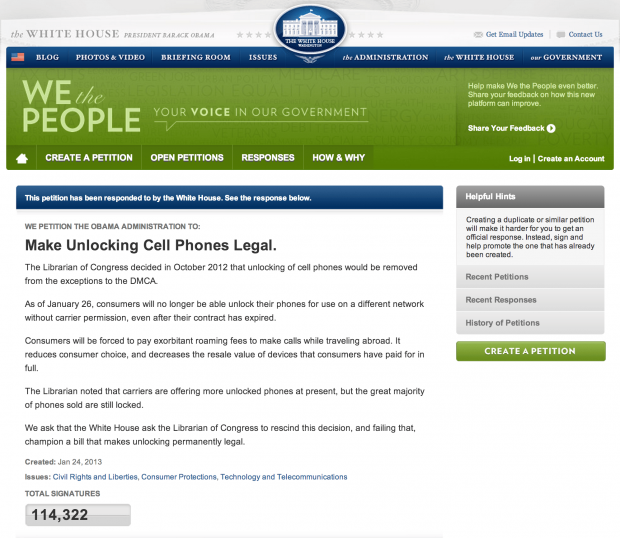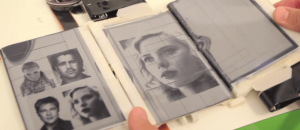Remember that petition that asked the White House to make unlocking cellphones legal? You know, the one that more than 100,000 Americans signed? The White House has issued their official response — they not only agree, they’re not alone.
The official response from the White House states that they agree “with the 114,000+ of you who believe that consumers should be able to unlock their cell phones without risking criminal or other penalties.” They even believe it should be the same for tablets, which they think are growing increasingly similar to phones (cause phones are getting huge that’s why).
The White House is not alone in this sentiment, as the Federal Communications Commission (FCC) has also released a statement wherein FCC Chairman Julius Genachowski says that the ban on unlocking phones doesn’t make any sense for consumers. Here’s the full statement:
The Copyright Office of the Library of Congress recently reversed its longstanding position and stated it is a violation of the Digital Millennium Copyright Act for consumers to unlock new mobile phones, even those outside of contract periods, without their wireless providers’ permission, and that consumers are subject to criminal penalties if they do.
From a communications policy perspective, this raises serious competition and innovation concerns, and for wireless consumers, it doesn’t pass the common sense test. The FCC is examining this issue, looking into whether the agency, wireless providers, or others should take action to preserve consumers’ ability to unlock their mobile phones. I also encourage Congress to take a close look and consider a legislative solution.
With the backing of both the White House and the FCC, it sounds like we can almost guarantee that the ban would be lifted in the future. But the Library of Congress has responded by issuing their own statement, and from the looks of it, things aren’t going to be that simple. While they acknowledge that rule would benefit from review, they also state that there other implications besides telecommunications policy and the competitiveness of the wireless market, and that the rule has since served those purposes.
One way to leapfrog the issue of interpretation by the Library of Congress is, as the White House suggests, new laws vis-a-vis Congress:
The Obama Administration would support a range of approaches to addressing this issue, including narrow legislative fixes in the telecommunications space that make it clear: neither criminal law nor technological locks should prevent consumers from switching carriers when they are no longer bound by a service agreement or other obligation.
Is it going to happen? Who knows. Still, today can be considered a victory for the many that believe that unlocking your cellphone should be legal for many reasons. But the fight’s just not over yet.
[via The White House, NYT, The Verge]

 Email article
Email article




